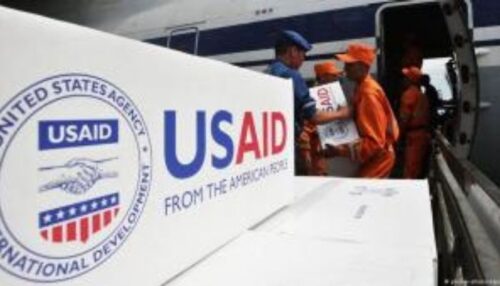
For decades, sub-Saharan Africa has been a major recipient of U.S. foreign aid, with the United States Agency for International Development (USAID) providing over $8 billion annually for essential programs in health, education, and humanitarian relief. However, a controversial decision by former U.S. President Donald Trump—with backing from billionaire Elon Musk—to dismantle the agency has sent shockwaves across the continent, leaving governments and aid organizations scrambling to manage the fallout.
Trump, taking to social media, called for USAID’s closure, accusing it of corruption and mismanagement, though he offered no concrete evidence to support his claims. While a federal judge has put a temporary hold on some aspects of the shutdown, the damage is already being felt, with mass layoffs, funding cuts, and the collapse of critical aid services across Africa.
A Devastating Blow to Health and Humanitarian Services
The impact of this decision has been far-reaching. In Kenya alone, more than 40,000 healthcare workers have lost their jobs due to funding cuts, while Ethiopia’s health ministry has been forced to lay off 5,000 American-funded medical professionals. Refugee camps in northern Kenya, which shelter 700,000 displaced people from 19 countries, are experiencing severe budget cuts, with U.N. agencies slashing services that relied heavily on U.S. funding.
“This is dramatic and consequential,” said Kenyan political analyst Ken O. Opalo, warning that many African nations could face severe health crises due to the sudden loss of USAID-supported programs.
Medhanye Alem, a representative of Ethiopia’s Center for Victims of Torture, described the situation as devastating, revealing that nine trauma treatment centers in the country have been forced to shut down. “We are in disbelief,” he said.
An Uncertain Future for Africa’s Aid-Dependent Communities
The closure of USAID programs marks the end of an era, as the agency has played a crucial role in Africa’s development for over 60 years. Millions of people rely on U.S. assistance for healthcare, food, and education, and the loss of funding has left a massive void that governments and local organizations are struggling to fill.
Experts warn that reversing this decision could take years—if not decades—as many projects may not recover from the sudden financial shortfall. In the meantime, Africa faces an uncertain future, with lives and livelihoods now at risk due to the collapse of one of the largest foreign aid programs in the region.


